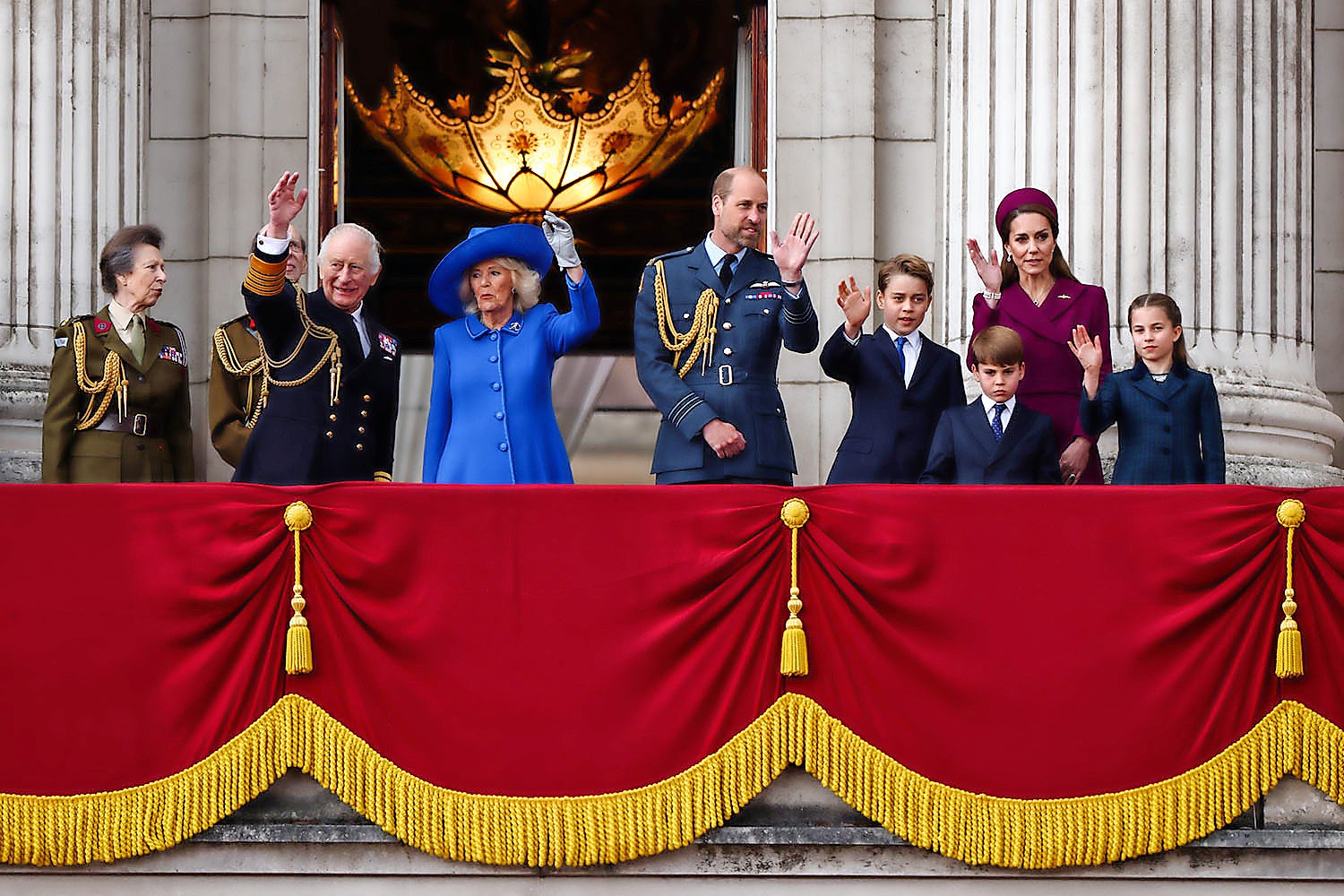To mark the second anniversary of his coronation last week, King Charles unveiled a new portrait. Peter Kuhfeld’s painting showed a man blurred by late afternoon light, looking rather vaguely into the distance. Royalist newspapers bristled – Queen Camilla’s portrait looked the more regal; Charles was adrift in the scenery.
But any review of Charles’s two years on the throne must admit it has been difficult – albeit mostly because of events beyond his control. He has suffered from cancer, as has the Princess of Wales. His disgraced brother Andrew continues to bring the family into disrepute, managing to make headlines alternately by his absence and presence at royal events.
Prince Harry has shot arrows at the institution from afar: only last week he told the media that the king does not speak to him, and that he does not know “how much longer my father has”.
Even without these troubles, Charles faced a tricky task. His mother was wildly popular – in a recent YouGov poll looking at rulers since 1066, she topped the charts for favourable views (Charles came in third, but gained a greater number of “unfavourable” ratings than Richard III, best known for the suspected murder of his nephews).
The institution has grown steadily less popular since the 1980s, when it enjoyed 80% approval. Now, according to the British Social Attitudes survey, only 54% think it important that we retain the royal family.
How much does all this matter? The extent to which the family is tracked, rated and analysed by the media tends to suggests it exists on a knife edge – one wrong move and it could stumble into serious peril. Other measures suggest it is safe, for now. The proportion that actually wants it abolished hovers at around 15%. But the royal family exists alongside a paradox that haunts all of Europe’s remaining kingdoms. There are not many of them: in 1900, only France, Switzerland and San Marino were not monarchies – now three-quarters of EU members are republics. However, those that still stand – including Norway, Sweden, Denmark, the Netherlands, Luxembourg and the UK – are among the most democratic. Why, then, do they keep their royals? After all, hereditary rulers constitute everything they stand against. They represent birth over talent, colonial rule and male primogeniture in countries that pride themselves on being modern and progressive.
Walter Bagehot’s theory was that kings and queens complement democracy. In 1867, he proposed that the state needs an “efficient” part, to run things, but also a “dignified one”, to “excite and preserve the reverence of the population”.
Another answer is proposed in a recent book, The Role of Monarchy in Modern Democracy, edited by Robert Hazel and Bob Morris – that monarchies have shrunk and twisted themselves into pseudo-democratic institutions. They are far more answerable to the public than we may think – and therefore, perhaps, more fragile.
The royal family exists alongside a paradox that haunts all Europe’s remaining kingdoms
The royal family exists alongside a paradox that haunts all Europe’s remaining kingdoms
One method by which they are held to account is through the money people are prepared to spend on them. The Spanish monarchy is relatively poorly funded, costingjust £0.15 per capita – the budget was slashed after it was made public after a scandal. In the UK, which at £86.3m spends the most overall, the public is split over whether they are value for money and parliament has, on occasion, told the royal family to rein in on its spending.
As a report into the costs of the monarchy loomed in 2019, Sweden’s King Carl XVI Gustav removed five of his grandchildren from the royal house. Luxembourg’s royals cost the most per head, at £20.92, which may not last; in 2022 public anger forced the household to publish its costs for the first time.
Newsletters
Choose the newsletters you want to receive
View more
For information about how The Observer protects your data, read our Privacy Policy
Another method is the law: Britain recently changed the rules of succession to make it gender-equal. A third method is investigation by the media, which keeps a beady eye on their spending, their associates, and their lapses of judgment. Opinion polls, meanwhile, track public feeling about their performance – the royal families permitted to remain are popular. Some 70% of Danes supported the monarchy in 2023, as did 72% of Norwegians in 2024, 54% of Swedes in 2022 and 59% of Dutch respondents in 2025; in Spain in 2025 that figure was 58%.
As an extreme measure, monarchs can be forced to abdicate, or the whole organisation can be brought to an end in a referendum. That is how monarchies were toppled in Italy and Greece, and reaffirmed in Luxembourg, Norway, Denmark and Belgium.
Charles can draw two lessons from the fate of unluckier royals. One mistake is to dabble in politics. When Grand Duke Henri of Luxembourg refused to rubber- stamp a euthanasia bill in 2008, he caused a constitutional crisis. Parliament subsequently relieved him of the power to veto or assent to laws, and his reputation did not recover. Monarchies have largely survived by reducing their influence and getting rid of any political power. In Sweden, royalty is purely ceremonial.
Another error is to create scandal. In Spain, King Juan Carlos was accused of taking more than $100m in kickbacks from Saudi Arabia over a rail-building contract in 2011. Prosecutors dropped the case, but not before he had decided to abdicate in 2014. Prince Bernard of the Netherlands was forced to resign from various roles over a report that he had accepted bribes from a US aircraft company.
Charles’s team has a dented reputation on both fronts. In 2015 a cache of secret “black spider” memos sent to senior government ministers showed him lobbying for policy change involving everything from troops fighting in Iraq to the availability of weighing in on a range of policies from the lack of support for troops fighting in Iraq to alternative medicines. Family members continue to attract scandal to the institution.
A smaller royal family might help: it reduces the risk that members will cause problems. Danish and Swedish royals have recently trimmed their members and Charles has expressed a wish to slim down the royal family. That must be balanced with British royals being busier than most and the public wanting them to maintain or increase their duties.
But the demands on royal families have always been contradictory: they must be special yet ordinary, informed and entertaining but scrupulously neutral, open but impeccably behaved. In truth, the future of the monarchy may depend on its ability to keep a low profile and stay out of trouble. The late queen mother used to quip that the greatest threat to the institution’s continued survival was indifference. That may no longer be the case.
Photograph by Henry Nichols/AFP

